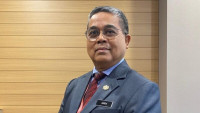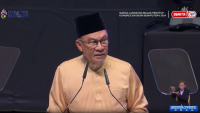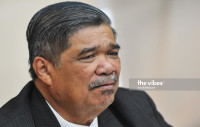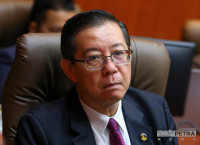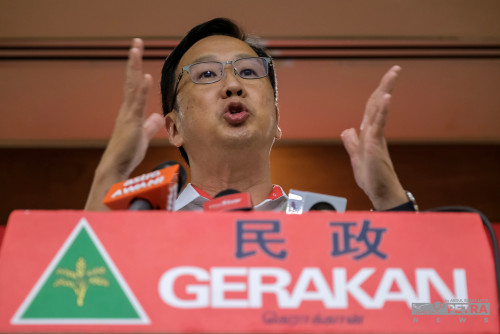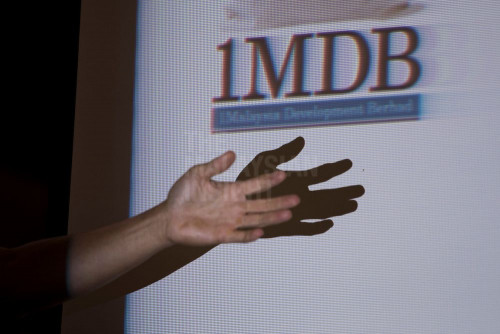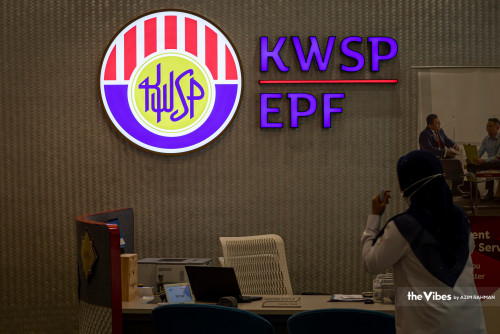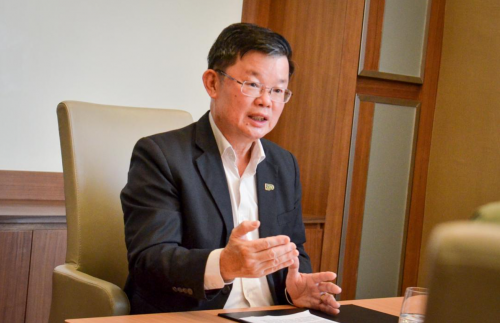IN 2012, an “eminent Malaysian professor” said that the prime minister of Malaysia must be a Malay Muslim even though there is no article in the federal constitution which prevents non-Malays from holding the post because the majority of the country’s citizens are Malays.
Now, in 2023, we hear a Malay politician repeating the same.
Are Malay politicians still insecure after all these years of entitlement, of “quotas” since 1971 and having control over the commanding heights of the Malaysian economy, the GLCs, the political and socio-cultural institutions that they still raise inane questions like these which are no-brainers?
Certainly, the Malay agenda is still a very effective populist ideology to get “Pribumi” votes in elections.
And while it can still win Malay votes, the Malay agenda conveniently serves the purpose of enriching the Malay crony capitalists who have been milking the country all these years since May 13, 1969.
This is all bad news for those who have been dreaming the Malaysian dream of equality, justice, and democracy.
Both Umno and Pakatan Harapan (PH) want the extension of the New Economic Policy.
This is indeed bad news for those who had hopes of a more liberal economic policy and for all who have criticised the government for its racially discriminatory economic and educational policies.
The so-called “Malay Agenda” has been twisted from its 1957 form to a different “Bumiputera” form in 1971 with amendment 8A to Article 153 which allowed the quota system and all the other excesses of racial discrimination.
Apart from anything else, the term “Bumiputera” is not even in our Independence Constitution.
For those politicians with a short memory, the 1971 NEP had an expiry date up to 1990. The Malay elite cannot keep changing the rules as they go along.
These Malay elites are obsessed with race which is not surprising when there is so much at stake for them in terms of economic gain.
Dr Mahathir’s “Malay Dilemma” is rooted in that paradigm. This obsession with race has little currency in the anthropology or sociology disciplines, not to speak of human rights in the international community.
Needs-based, not race-based, policies
It still amazes me that intellectuals in the government cannot conceive of ways to help the poor and marginalised without raising the issue of race.
Admit that the so-called “Malay Agenda” is really a populist agenda to secure votes in the elections and not because there is no other choice.
More than sixty years of racially based policies have divided us while enriching the well-connected crony capitalists linked to the political elite.
It is time to replace race-based policies with needs-based measures that target the lower-income and marginalised sectors.
The NEP was scheduled to end in 1990 but has become a populist never-ending policy to win over the Bumiputras while benefiting mainly the political elite.
It is common sense that poor rural Malaysians should be assisted based on their needs according to the economic sectors in which they live and work.
Today, with the lack of ethnic diversity in the civil and armed forces, it is high time that recruitment and promotion in these services are based on merit.
Costs of so-called ‘Malay Agenda’
With the “Malay Agenda”, Malaysia’s economic progress continues to be plagued by a lack of innovation and skills, a low level of investments in technology, declining standards in education, relatively high labour cost and sluggish growth in productivity.
The cost and consequences of the racially discriminatory policy in Malaysia have been immense, especially since the NEP in 1971.
It has caused a crippling polarisation of Malaysian society and a costly brain drain.
According to the World Bank: “The diaspora has likely reached about one million people in 2010; compared to about 750,000 in 2000, the brain drain is estimated at a third of the total diaspora. This translates into 335,000 in 2010, which is up from 217,000 in 2000.”
While the Chinese middle and working classes in Malaysia have largely adapted to this public-sector discrimination by finding ways to make a living in the private sector, this has not been so easy for working class Indians and other marginalised communities – including the Orang Asli.
More potentially dangerous and insidious is the effect this widespread racial discrimination has had on ethnic relations in this country.
Unity can only be promoted through an affirmative action policy based on need, sector, or class, never on race.
Thus, the longer dishonest politicians raise asinine issues that have no basis in the constitution, the longer we let the racially discriminatory New Economic Policy hold sway, our country will continue its downward slide. – The Vibes, December 17, 2023
Kua Kia Soong is adviser of human rights organisation Suaram and a former Petaling Jaya MP.




